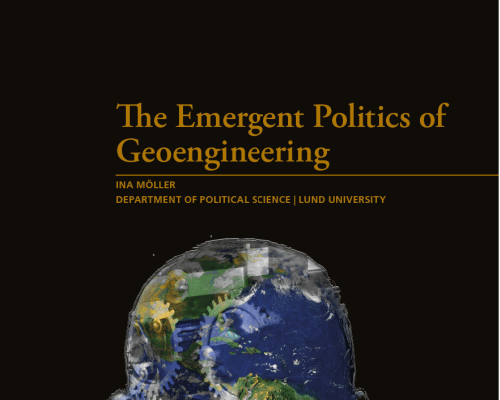Author(s): Dr. Ina Möller
Abstract
Geoengineering technologies are by definition only effective at scale, and so international policy development of some sort will be unavoidable. It is therefore important to include governability as a dimension when assessing the technologies’ feasibility and potential role in addressing climate change. The few existing studies that address this question indicate that for some technologies, policy development at the international level could be exceedingly difficult. This study provides an in-depth, theoretically informed analysis of the obstacles that policy makers face when addressing geoengineering governance. Using data in the form of negotiation proceedings, observations, and interviews with government officials from seven different countries, it argues that a significant part of the challenge lies in dissonances between problem definitions that are widely used in the geoengineering governance debate, and the structures and expectations that shape environmental policy making. These include a lack of institutional fit between the process-based differentiation of geoengineering technologies (CDR and SRM) and the international legal architecture; a lack of fit between the urgency of demanded governance action and prevalent scientific and political uncertainties; and a lack of fit between risk-risk trade-off narratives and the precautionary norms of environmental governance.



